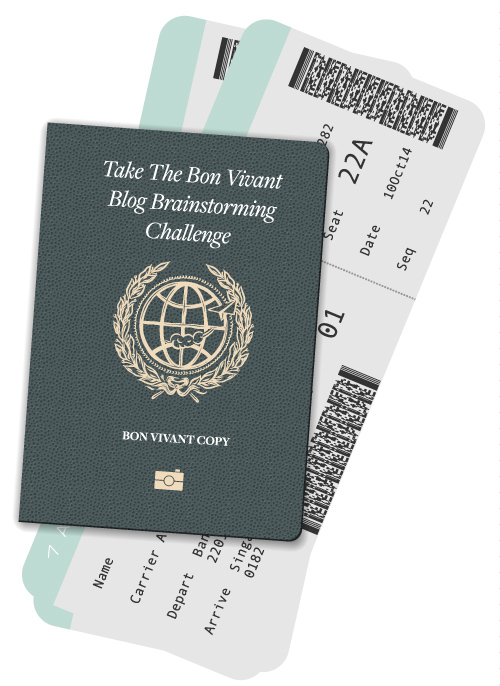A few weeks ago, I told you why savvy travel advisors should also be really good spies. Essentially, you should be “spying” on your competitors’ websites to help inform what your own website should look and sound like — and how you can differentiate yourself from the competition.
Well, get ready to pull out the trench coat again: it’s time for part two of my “spy and swipe messaging” series.
This time, we’re not spying on competitors. Nope, we’re going straight to the source: spying on your ideal clients.
Sort of.
Here’s what I mean.
To write a website that really resonates with your ideal clients, you should swipe messaging from the stuff your ideal clients are already reading.
If you’ve got a good understanding of who your ideal clients are, then you probably know what kinds of books, magazines, and other media they’re digging into on a regular basis. A Wine Spectator reader is a lot different from a People reader — and you should know the difference. (If you need help, you could spend an afternoon “stalking” the folks who’ve liked your FB business page to see what kinds of mags and books they have “liked” on their profiles. That’s only a *little* creepy … but hey, that’s a spy’s life for ya).
How to “Spy” on Your Clients to Improve Your Travel Agent Marketing
Here’s how to put that knowledge into action:
Make a list of the magazines you think your ideal client reads, then head to the big ol’ magazine rack at your local bookstore. Start studying copies to get a feel for the kind of writing your ideal client gravitates towards.
Remember, you’re not really concerned with content (your ideal client may be really into Wired magazine, but the kind of trips you plan have nothing to do with tech — that’s fine). What you should pay attention to is tone.
Is the magazine written in short, breezy sentences — like a fun conversation between friends? Do the headlines use lots of exclamation points? Do you have to get out a dictionary to decipher most words?
Whether refined, elegant, kooky, or feminine, that’s the kind of tone you want reflected on your own website. You could even make a list of words or phrases that commonly pop up between magazines you’ve studied and use them in your website copy.
The point is this — your want your ideal client to feel like they’ve “come home” when they land on your website. And that has as much to do with the kinds of trips you describe on your site as how you describe them.
(Also — pay attention to the design of the magazines too. If lots of your ideal clients’ mags have a graphic feel and tons of white space, that’s what you want your website to look like as well. Just one example).
Essentially, you’re aligning your brand with your ideal client’s lifestyle — so you’ll fit right in.
But to come across as a the perfect fit, a savvy travel advisor knows it does take a little detective work 😉
If you’ve gone incognito for the sake of improving your travel agent marketing, what spy tactics did you use to learn more about your ideal clients? I’d love to hear about them in the comments below!

I think this is great – the information is very helpful. But what if you have more than one Ideal Client? They may share some of the same interests for example, but I have more than one niche. For me, my clients who are interested in archaeology, history and culture may also be interested in wellness for example or my other niche that I want to develop which is artisan travel (traveling to artisan communities, supporting the artists). Would this be where you have separate pages and then segment your email list as well even though there is some carryover between interests?
PS Starting to figure out a new website – the one I have my son put up in about 5 minutes.
Hi Julie! Good question—it does get trickier with the more niches you have, but you’re definitely on the right track. Yes, to determine the tone and approach you take in your overall marketing, you’ll want to look at the commonalities your different audiences share (and if there’s NO overlap, then that’s a good indication that you’re targeting an audience that’s just too broad, which will make writing your website much harder). I bet your clients who are interested in archaeology/culture and artisan travel share a lot of commonalities, so that’s good.
And yes—I recommend you create separate pages on your website to speak to your different niches. The more specific you’re able to get in your copy, the more effective it will be, and when you create separate pages you’re able to speak more specifically to the the concerns/desires/fears of your particular ideal client.